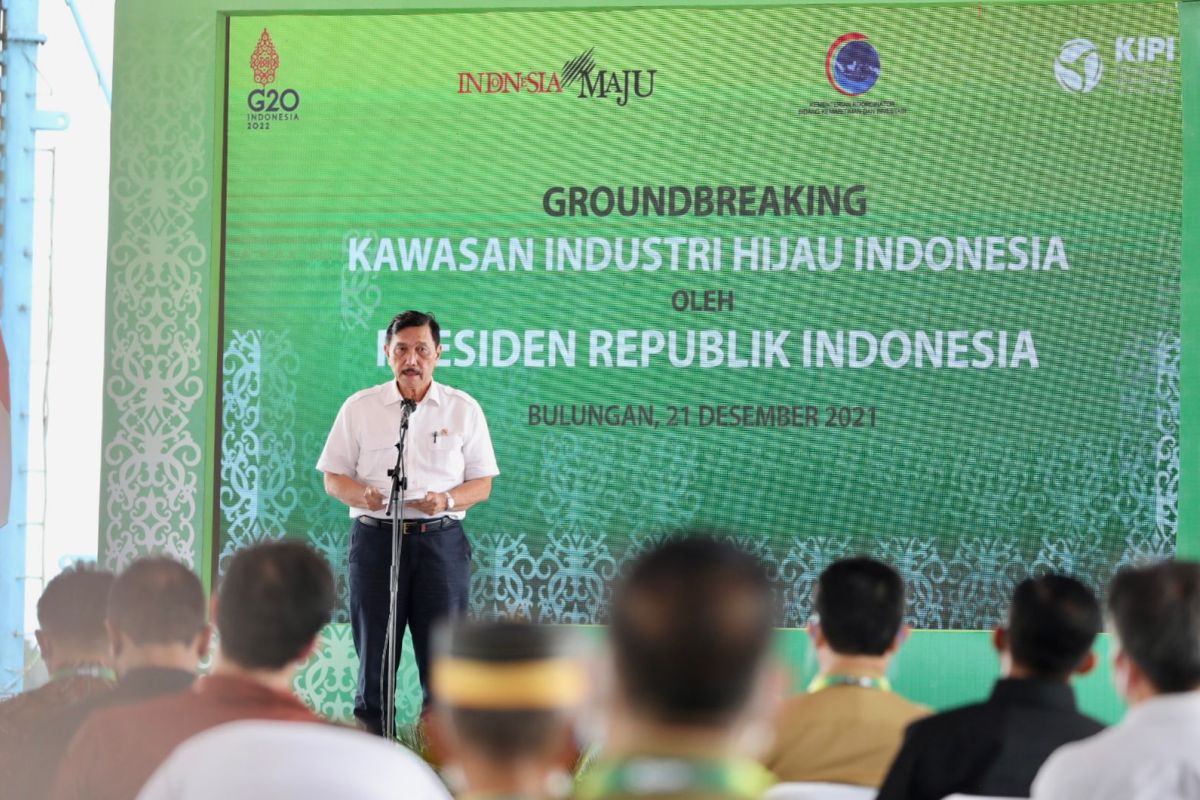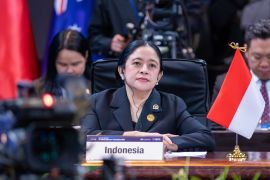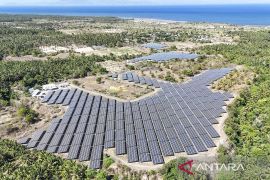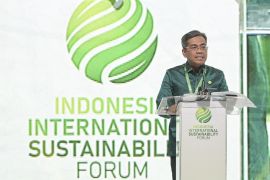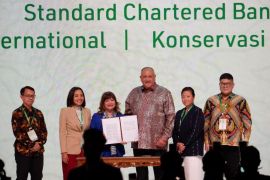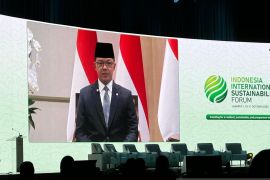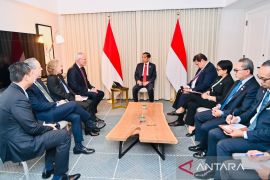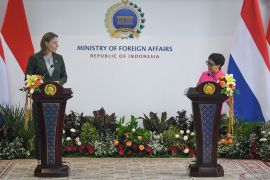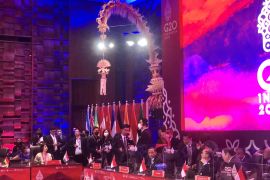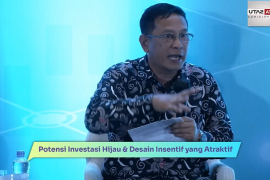Youngsters' power, voice, network, and connection must be utilized to help rebuild our connection with nature to create a sustainable future for all of usJakarta (ANTARA) - The youth's contribution to create a more sustainable and livable Earth has become increasingly important in present times.
This initiative can be started by supporting companies that conduct eco-friendly business practices through green investment.
Green investment focuses on companies or projects committed to conserving natural resources, reducing pollution, or supporting other eco-friendly business practices.
Co-Chair of 2022 Indonesia Y20 Indra Dwi Prasetyo emphasized the importance of acting quickly to save the planet.
Consequently, how we live on the planet, be it by utilizing resources or handling waste, should be changed in addition to our linear economy.
"Youngsters' power, voice, network, and connection must be utilized to help rebuild our connection with nature to create a sustainable future for all of us," he affirmed.
The Y20 forum is expected to be able to push the implementation of the circular economic model.
It is also expected to strengthen partnership between G20 countries and youngsters as the agents of change in creating a safe, inclusive, sustainable, and livable environment for everyone.
Within the last three to five years, green investment has become a trend in the global market.
This is reflected in the flow of capital that had reached US$7.3 billion during the first quarter of 2020 that became the highest record achievement throughout history.
Related news: Push green, blue economic investment to expedite development: Minister
This type of investment has been popular in developed countries' market along with the rising awareness of environmental and social issues among retail investors within the last several years.
However, Indonesia seemingly still appears slow to adopt the trend.
Indonesia was one of the 40 or so countries that had signed the Global Coal to Clean Power Transition declaration during the 26th Change Conference of the Parties (COP26) Summit.
As the largest economic powerhouse in Southeast Asia, Indonesia is committed to achieving the zero-emission target by 2060 or 2040 at the earliest.
This target came with the condition that the country receives financial and technical support from the international community.
The government estimates that low-carbon development toward zero emissions by 2045 can yield a gross domestic product (GDP) growth rate of six percent per year on average or above the usual current business project.
This program is also estimated to be able to create 15.3 million jobs and, most importantly, place Indonesia as the primary destination for green investment.
This advancement can certainly be achieved more quickly with strong support. During the COP26, the Finance Ministry expects that developed countries can realize financing related to climate change worth US$100 billion for developing countries.
With the help of international funding, Indonesia's potential to reduce the carbon emission rate can be realized.
Related news: Some 80 percent budget for IKN sourced from PPP, investment: President
Along with the rising trend of green investment among members of the public, who have become more aware of carbon emissions, VP External Affairs of Pluang Wilson Andrew suggested that Indonesia needs a supporting regulation framework.
To this end, his company supports the government's efforts in preparing a regulation to create an ideal environment for green investment and increase capital in the country.
The company's users can invest in corporations that provide green equity.
These companies' stocks can be called green equity if they consider the environmental aspect and natural resources through their fund allocation and activities related to the environment.
In future, various private companies are expected to print out green equity in various investment products that they offer to encourage purchases toward eco-friendly investment products.
This can certainly raise the green investment trend among youths and become a collective step to create a sustainable and livable planet in future.
The Indonesia Stock Exchange (IDX) already supports the development of sustainable investment, such as by joining the UN's Sustainable Stock Exchange (SSE) initiative in 2019.
IDX also supports the Task Force on Climate-related Financial Disclosures on June 15, 2021, while also providing green investment products.
Examples of these products include green bond, green sukuk (Islamic bonds), and mutual funds based on the Environmental, Social, and Governance (ESG) aspect.
In addition, there are two ESG-themed indexes in IDX: the IDX ESG Leaders index and SRI-KEHATI (Sustainable and Responsible Investment-Biodiversity) index.
They each contain 30 stocks and 25 stocks of companies recorded to have a high commitment in practicing the ESG aspect.
One of the policies that the Indonesian government has designed to draw green investment recently is the implementation of carbon price that comprises the carbon tax and carbon trade.
This policy is stipulated through the Law on Taxation Regulation Harmonization that had issued a regulation on the carbon economic value to dictate the carbon trade mechanism.
Related news: Green Taxonomy to empower sustainable financial tools: OJK
Moreover, the Investment Ministry or the Investment Coordinating Board (BKPM) and the Foreign Affairs Ministry had created a memorandum of understanding to strengthen Indonesia's economic diplomacy through foreign direct investment (FDI).
The two ministries are committed to opening green investment opportunities to encourage investment in the health sector, draw green and eco-friendly FDI, and conduct strategic partnership within the Sovereign Wealth Fund (SWF) framework.
Coordinating Minister for Maritime Affairs and Investment Luhut Binsar Pandjaitan stated that Indonesia is currently focusing on foreign investment in the green economy sector.
As a result, foreign investors have to fulfill several conditions to invest in Indonesia.
These conditions comprise commitment to eco-friendliness as well as educating the local workforce, willingness to conduct technology transfer, and provide added value for Indonesia in the management of mineral resources.
Related news: Indonesian delegation visits US, Canada to promote B20 agenda
Related news: Minister supports sustainable investment to achieve SDGs targets
Translator: Agatha Olivia V, Fadhli Ruhman
Editor: Fardah Assegaf
Copyright © ANTARA 2022
